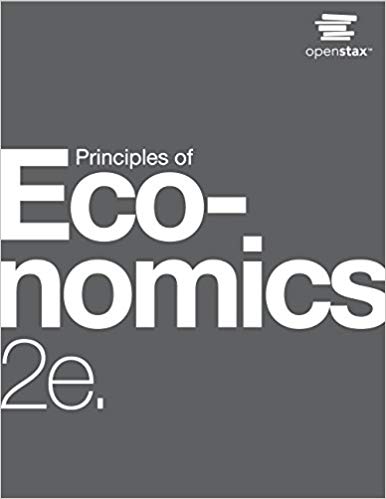
Do rational expectations tend to look back at past experience while adaptive expectations look ahead to the future? Explain your answer.
Whether rational expectations look back at past experience while the adaptive expectations look ahead to the future is to be determined.
Explanation of Solution
The perspective of rational expectations supports that many people incorporate excellent information about the economic events and impact of the economy. This may lead to prompt price and other important economic adjustments. On the other hand, adaptive expectations theory worked on policy in which people have precise or limited information about economic information and other aspects with the impact of economy procedures. This may lead to a slow growth of price and other important economic adjustments.
As per the definition, rational expectations seek to predict the future as accurately as possible by using past experience as a departure point. While, adaptive expectations are largely backwards looking; that is, they adapt as experience accumulates, without attempting to look at future.
Therefore the statement is incorrect.
Rational Expectation: According to the theory of rational expectations; people form the most accurate possible expectations about the future that they can, using all information available to them.
Adaptive Expectations: According to the theory of adaptive expectations; people look at past experience and gradually adapt their beliefs and behaviour as circumstances change, but are not perfect synthesizers of information and accurate predictors of the future in the sense of rational expectations theory.
Want to see more full solutions like this?
Chapter 26 Solutions
Principles of Economics 2e
Additional Business Textbook Solutions
Operations Management
Horngren's Financial & Managerial Accounting, The Financial Chapters (Book & Access Card)
Business Essentials (12th Edition) (What's New in Intro to Business)
Horngren's Accounting (12th Edition)
Financial Accounting (12th Edition) (What's New in Accounting)
- Draw the IS-LM diagram at equilibrium and use it to show how one or both of the curves change based on the following exogenous changes. An increase in taxes. An increase in the money supply An increase in government purchasesarrow_forwardDon't use Ai. Answer in step by step with explanation.arrow_forwardcorospond to this message. Gross Domestic Product (GDP) represents the total value of all goods and services produced by a country. The news reporter shows excitement because rising GDP signifies positive economic performance. Consumer spending has increased while businesses expand and new job opportunities become available. If the GDP rises, your delivery business will likely handle more packages as consumer purchasing increases. The increase in business activity will lead to more opportunities for your company to generate higher profits. You may need to take action by hiring additional staff and purchasing extra delivery vehicles or finding ways to improve your operation speed and efficiency to meet increased demand.arrow_forward


 Economics (MindTap Course List)EconomicsISBN:9781337617383Author:Roger A. ArnoldPublisher:Cengage Learning
Economics (MindTap Course List)EconomicsISBN:9781337617383Author:Roger A. ArnoldPublisher:Cengage Learning

 Economics Today and Tomorrow, Student EditionEconomicsISBN:9780078747663Author:McGraw-HillPublisher:Glencoe/McGraw-Hill School Pub Co
Economics Today and Tomorrow, Student EditionEconomicsISBN:9780078747663Author:McGraw-HillPublisher:Glencoe/McGraw-Hill School Pub Co





